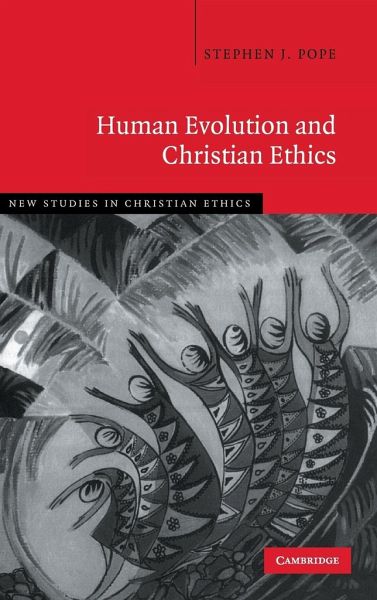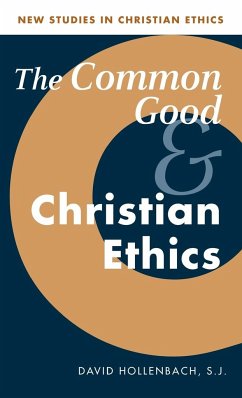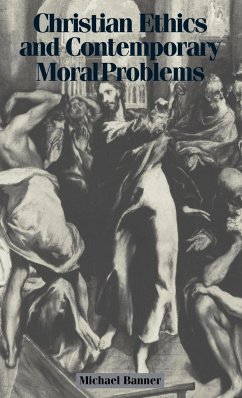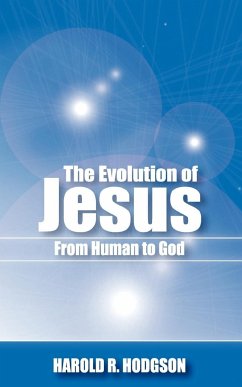
Human Evolution and Christian Ethics

PAYBACK Punkte
36 °P sammeln!
Pope argues that knowledge of evolution, properly interpreted, is compatible with Christian faith and morality.Can the origins of morality be explained entirely in evolutionary terms? If so, what are the implications for Christian moral theology and ethics? Is the latter redundant, as socio-biologists often assert? Stephen Pope argues that theologians need to engage with evolutionary theory rather than ignoring it. He shows that our growing knowledge of human evolution is compatible with Christian faith and morality, provided that the former is not interpreted reductionistically and the latter...
Pope argues that knowledge of evolution, properly interpreted, is compatible with Christian faith and morality.
Can the origins of morality be explained entirely in evolutionary terms? If so, what are the implications for Christian moral theology and ethics? Is the latter redundant, as socio-biologists often assert? Stephen Pope argues that theologians need to engage with evolutionary theory rather than ignoring it. He shows that our growing knowledge of human evolution is compatible with Christian faith and morality, provided that the former is not interpreted reductionistically and the latter is not understood in fundamentalist ways. Christian ethics ought to incorporate evolutionary approaches to human nature to the extent that they provide helpful knowledge of the conditions of human flourishing, both collective and individual. From this perspective, a strong affirmation of human dignity and appreciation for the theological virtues of faith, hope and charity is consistent with a revised account of natural law and the cardinal virtues.
Table of contents:
Preface; 1. Evolution and religion; 2. The indifference of Christian ethics to human evolution; 3. Varieties of reductionism; 4. Faith, creation and evolution; 5. Chance and purpose in evolution; 6. Human nature and the human good; 7. Freedom and responsibility; 8. Human dignity and common descent; 9. Christian love and evolutionary altruism; 10. The natural roots of morality; 11. Natural law in an evolutionary context; 12. Sex, marriage and family.
Can the origins of morality be explained entirely in evolutionary terms? If so, what are the implications for Christian moral theology and ethics? Is the latter redundant, as socio-biologists often assert? Stephen Pope argues that theologians need to engage with evolutionary theory rather than ignoring it. He shows that our growing knowledge of human evolution is compatible with Christian faith and morality, provided that the former is not interpreted reductionistically and the latter is not understood in fundamentalist ways. Christian ethics ought to incorporate evolutionary approaches to human nature to the extent that they provide helpful knowledge of the conditions of human flourishing, both collective and individual. From this perspective, a strong affirmation of human dignity and appreciation for the theological virtues of faith, hope and charity is consistent with a revised account of natural law and the cardinal virtues.
Table of contents:
Preface; 1. Evolution and religion; 2. The indifference of Christian ethics to human evolution; 3. Varieties of reductionism; 4. Faith, creation and evolution; 5. Chance and purpose in evolution; 6. Human nature and the human good; 7. Freedom and responsibility; 8. Human dignity and common descent; 9. Christian love and evolutionary altruism; 10. The natural roots of morality; 11. Natural law in an evolutionary context; 12. Sex, marriage and family.














